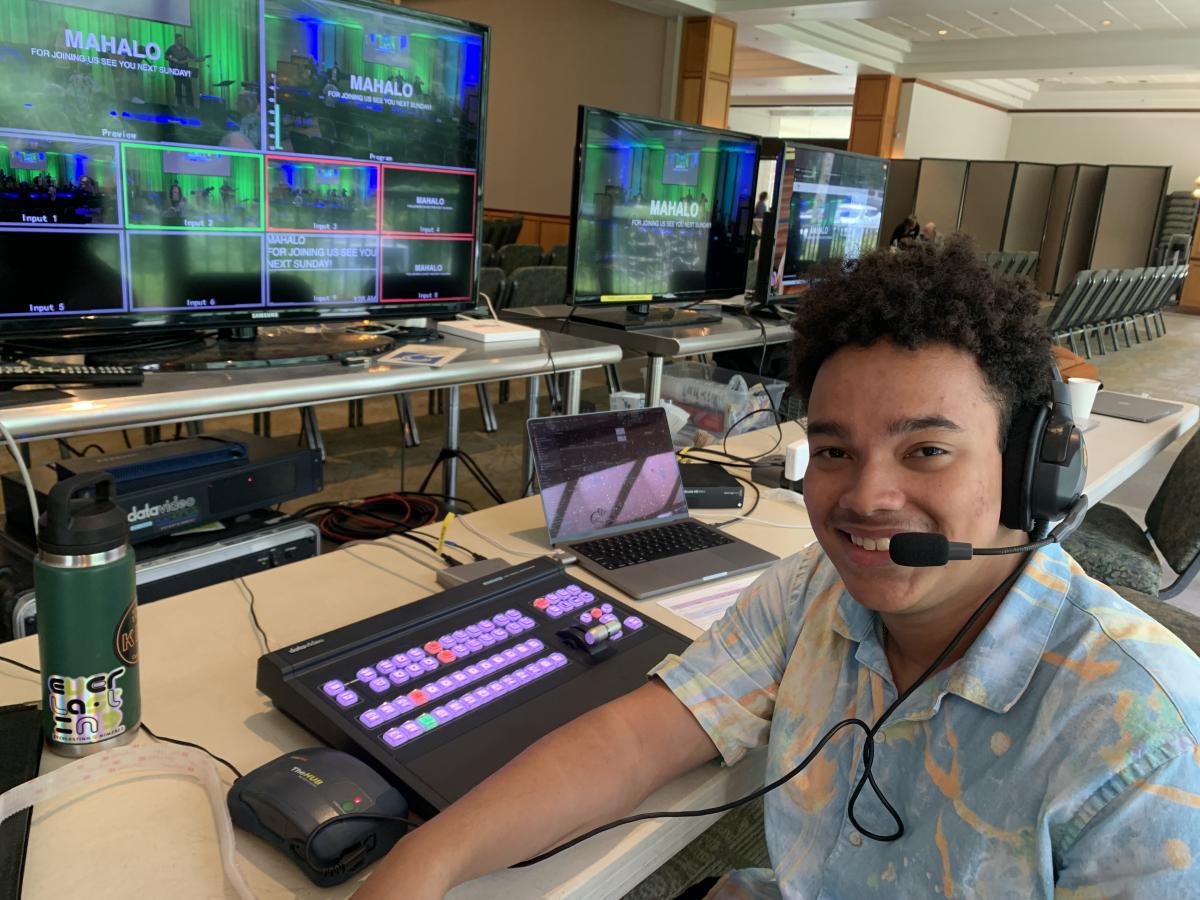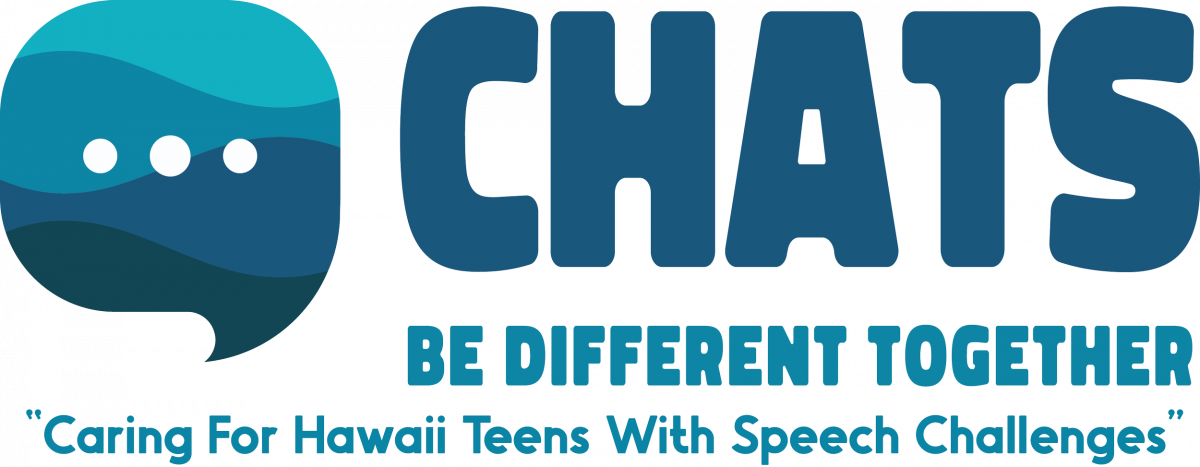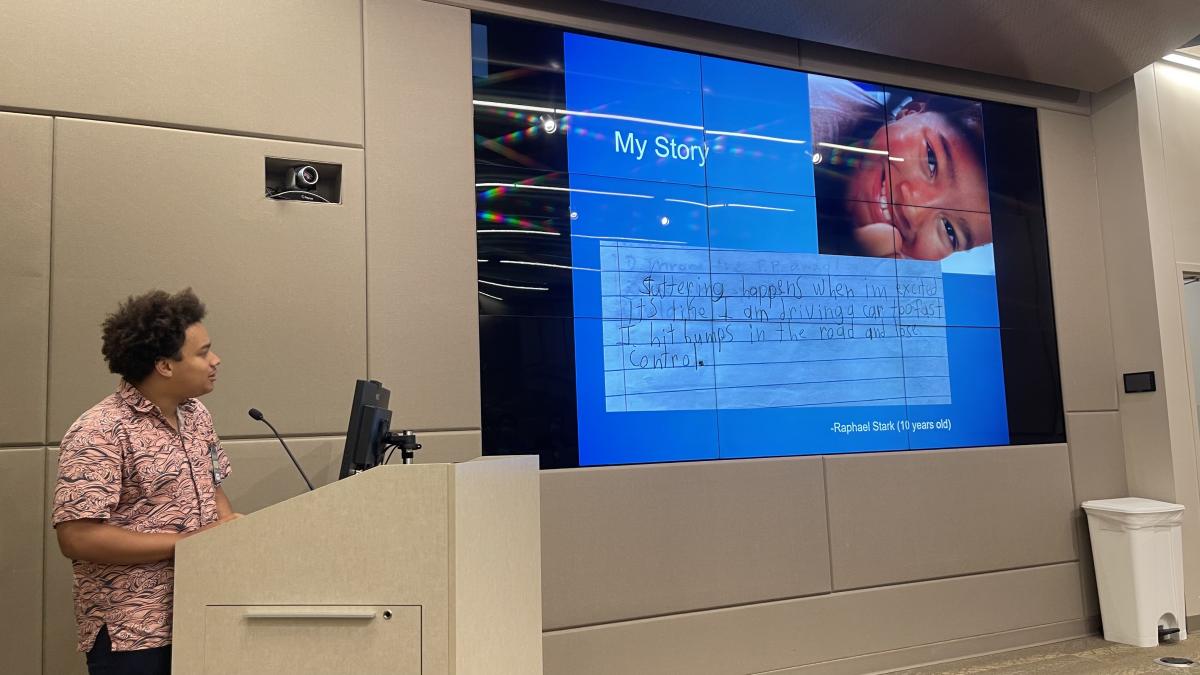

About Me:
I presently live in Honolulu, Hawaii; where I was born and raised. I am a homeschooled student beginning my senior year this fall. I am also the President of a nonprofit I founded in 2021 called CHATS: Caring For Hawaii Teens With Speech Challenges.
About My Family:
I come from a musical family. My father is the associate principal violinist with the Hawaii Symphony Orchestra, my mother is an opera singer who performs with Hawaii Opera Theater, and I have an older sister who is studying musical theater in New York City. I grew up playing piano, organ, percussion, and singing main stage roles with the Hawaii Opera Theater. I learned the importance of serving the community from my parents. From the age of 5, my family and I would visit local senior centers during the holiday season and perform for the residents and staff. My sister and I would include vocal and piano duets, I would accompany her on violin while she danced hula and the family would perform original arrangements of holiday favorites. One highlight was my portrayal of the Little Drummer boy on snare drum with my father on violin and my sister and mother on vocals.
My Hobbies and Passions:
 My interests include my work advocating for the acceptance and normalization of those with speech differences. I enjoy playing the piano, church organ, and percussion. As part of the worship and production team at my church I run visual slides and delegate video switching between three cameras. I also train others to operate these positions as well. Enjoying local Hawaiian beaches is a must for me as well as traveling and touring museums. As a future film production major and tech “nerd” I enjoy all things relating to video and camera, this includes creating videos, films, and shooting award winning photos. I am passionate about helping others and showing my community how we can all make a difference together. Other passions include, film making, music, and teaching teens how to make their community a better place.
My interests include my work advocating for the acceptance and normalization of those with speech differences. I enjoy playing the piano, church organ, and percussion. As part of the worship and production team at my church I run visual slides and delegate video switching between three cameras. I also train others to operate these positions as well. Enjoying local Hawaiian beaches is a must for me as well as traveling and touring museums. As a future film production major and tech “nerd” I enjoy all things relating to video and camera, this includes creating videos, films, and shooting award winning photos. I am passionate about helping others and showing my community how we can all make a difference together. Other passions include, film making, music, and teaching teens how to make their community a better place.
My Career Success:
In living with a stutter and growing up performing in front of big crowds, I’ve had to grow comfortable with the way I talk and trust that others will be patient and give me the time I need to finish talking. While gaining more and more confidence in speaking in front of others, I’ve been able to share the message about my nonprofit, CHATS, and spread awareness about mental health, anti-bullying, and the importance of community efforts. This also led me to highlight my love of videography, where I made a video that was shown on PBS Hawaii, highlighting a mental health clinic for youth. I’ve been recognized by Mental Health America of Hawaii as the recipient of the “Youth Mental Health Advocate 2022 Aloha Award” and was featured on local television news programs. I was recently honored as a Taco Bell Ambition Accelerator 2024 Seed Prize Awardee for my project, “Bridge of Aloha”: Hawaii to Africa-Empowering Youth in Kenya with Speech-Language Challenges.
Do you remember when you first began to stutter?
I have had a stutter for as long as I can remember. It was a gradual progression, I would stutter for a few weeks then I would not stutter for a month. Eventually, the time between stuttering got smaller and smaller until one day, my stuttering stayed.
Does it run in your family? Who else stutters?
Stuttering runs on both sides of my mother’s family. She had a stutter as well as her mother and her grandfather on her father’s side of the family.
Did you seek treatment? Did it help?
I did receive treatment from a speech pathologist who happened to be a family friend. The sessions helped me discover what my stutter was and how I could best work with it.
Tell us about your experience with stuttering as a child.
Though I was bullied as a child, I didn’t think of my stutter as something that was wrong with me. Part of that came with the support from my family and friends. A number of people didn’t even notice I had a stutter until I told them.
Has your stuttering gotten worse or better since you were younger? How?
My stutter hasn’t gotten better or worse. Through accepting my stutter, that has helped me to not have a negative mindset towards it.
How does stuttering affect you in the work you do?
As a public speaker and working in the entertainment industry, I’ve found that my stutter doesn’t hinder me from doing what I love to do. A lot of that comes from positive environments and amazing “co-workers.”
How is your stuttering today? What do you do to control or manage it, if anything?
Currently I just go about my life with the knowledge that I may need to take extra time to get my words out. I find that feelings of excitement, nervousness, or anxiety can trigger my stutter, so I try to manage those feelings as much as I can. I also take into account which words/sounds may trigger my stutter and substitute if needed.
What are the biggest challenges of stuttering?
As actor James Earl Jones said, “One of the hardest things in life is having words in your heart that you can’t utter.” I feel this challenge is the hardest that I’ve had to deal with through having a stutter. I have words that I want to say, but I know that it’s going to be difficult to say them, so sometimes I choose not to.
What is your greatest accomplishment with regard to stuttering?
In 2021, I was looking for groups in Hawaii for teens like me who have a speech challenge. But, there weren’t any, so at the age of 14, I decided to start my own. Through dedication and hard work I was able to create a nonprofit organization called CHATS: Caring for Hawaii Teens with Speech Challenges. I’ve spoken to over 5,000 students, teachers, parents, and medical professionals about inclusion, acceptance and ways they can best help those with speech differences.
Based upon your experiences, what would you like to tell children who stutter?
Through being teased and mocked myself I found that it is important to educate others rather than show hatred or anger towards others. While having this mindset I’ve come to the realization that in order for others to accept you, you first have to accept yourself along with your unique challenges. I would encourage children with a stutter to face their challenges and speak often, while educating those who tease or mock you. In realizing that this is easier said than done, I encourage children to let their parents know if they are ever bullied or hurt physically or mentally because of what others are doing to them.
Based upon your experiences, what would you tell parents of children who stutter?
Parents play a vital role in helping their child navigate in a fluid world. Parents act as the first advocates for their kids by working together with their pediatrician and school, to find ways to help their child to feel comfortable and supported. It is important for parents to have a positive view about their child’s stutter, therefore the child will have a positive view of themselves. Parents should also know the do’s and don’ts when helping someone who has a stutter. This can be learned from speaking to speech pathologists or just by talking to other stutterers including their own child. Parents should never force their child to hide their stutter or to speak if they aren’t comfortable, instead they should be encouraging their child to talk and to teach others to listen.
What else should we know?
I recently partnered with a nonprofit in Africa to help kids in Kenya with speech challenges. My “Bridge of Aloha” initiative is connecting Hawaii-based speech and language resources with kids 10,000 miles away in Kenya.
From the Winter 2025 Magazine






 Podcast
Podcast Sign Up
Sign Up Virtual Learning
Virtual Learning Online CEUs
Online CEUs Streaming Video Library
Streaming Video Library